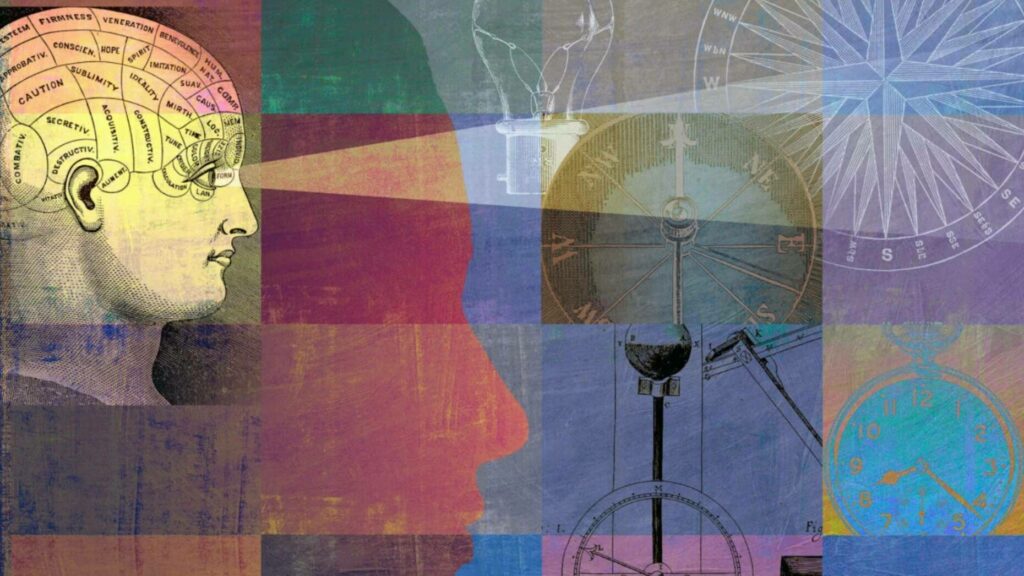
Originally Posted by Ladislau Dowbor in Other Words
In the midst of abysmal inequality, around hunger and the devastation of the planet, many pretend to be blind and repeat the mantra: God, Family and Homeland. Behind his delirium, there is a cynical reason that, in order to preserve interests, seeks to hide the exits.
The scientific understanding of the subject is not complicated. We are steadily making progress in what has been called a slow-motion catastrophe. The destruction of this lonely Earth, our own habitat, advances through climate change, drastic reduction of biodiversity, soil sterilization, water and air pollution, chemical contamination, deforestation and so many surrealist dramas as plastics in the seas, rivers and elsewhere. our blood. We have all the numbers, statistics and causality chains, we know what and who is/are responsible. And we have all the information about the social catastrophe, 850 million going hungry, of which about 180 million are children, in addition to 2.3 billion in food insecurity and even more with difficult access to clean water. About 2 billion do not have access to electricity, not to mention digital inclusion. We are destroying our vital environment, for the profit of a few. Where has our rationality gone?
We can shrug: poverty has always existed. And pretend we don’t know: plastic in the seas is not always visible, the Amazon is burning far away, and 2050 seems so far away. Omelettes and cracked eggs and so on. But the fact is, all this drama is simply not inevitable and the suffering is not necessary. We have all the obvious measures outlined in the 2030 Agenda, 17 goals and 169 objectives. And we have all the technology we need, including the basic income system that has been tried and tested in Brazil and other countries. And, of course, we have the financial means. The world GDP of $100 trillion that we are reaching this year means that what we produce in goods and services is equivalent to $4,200 a month per family of four. What we currently produce is largely sufficient to ensure that everyone has access to basic family needs, comfort and dignity. Of course, we can refer to net national income instead of gross domestic product, or add accumulated fixed capital, but that doesn’t change the basic fact: we are destroying our environment and creating enormous suffering for billions, setting ourselves up for an even greater catastrophe. . for our children, while we have all the necessary means to reverse the dramas. Our problems are not economic, in the sense of lack of resources: they are political and social organization issues.
A simple example helps us to come back to Earth. The world faces inflation, and governments, with strong support from financial interests, are raising basic interest rates, as if the economies were overheated, very dynamic. But look at, for example, energy. The production and consumption of oil in the world has been around 90 million barrels per day in recent decades, remarkably stable. But their prices have shown a yo-yo behavior. This is attributed to “markets”, but the fact is that extraction costs, supply volume and end use have not changed significantly. We didn’t have to wait for the conflict in Ukraine to speculate on oil.
Figure 1. Real oil price, from January 1970 to April 2022 (dollars corrected per barrel)

The obvious reason is that these are not “market prices”, which would reflect variations in supply and demand, but political decisions. We are dealing with market makers, not market users. Oil is a natural resource: it is extracted, not produced. And it belongs to countries, not corporations. But corporate extractors and traders decide on prices. It’s not a question of costs, but of power to increase profits. By late 2022, “profits at the world’s biggest oil companies soared to nearly $173 billion as Russia’s war in Ukraine sent energy prices soaring, according to analyst estimates. Britain’s Shell and France’s TotalEnergies reported profits for the first nine months of 2022 of $59 billion. US rivals Chevron and ExxonMobil are expected to report year-to-date earnings close to $70 billion, while Britain’s BP’s 2022 earnings could surpass the $20 billion mark. Cumulative revenues for the top seven private sector oil drillers during the first nine months of 2022 could reach $173 billion, according to analyst forecasts collected by S&P Global Market Intelligence and reported earnings.” Oil profits at Exxon tripled in 12 months.
As energy use permeates all sectors, prices rise throughout the economy. Many governments are subsidizing end users rather than cutting profits through windfall profits taxes. The higher prices paid by the population fuel these higher profits. Prices do not “go up” out of nowhere, they are raised at the source, whatever the pretext. Inflation is a transfer of money to Big Oil, and to big intermediaries, leaking out to various sectors. Should we cede control of natural resources to private speculators? Brazil’s former Bolsonaro government largely privatized state-owned Petrobras, in the name of “fighting corruption” – a polyvalent political narrative – nearly doubling the prices of gas cylinders and gas stations. It was a political decision, and the money that families have to pay is transferred to large private companies in the form of dividends. Is there any scientific justification for huge profits from extracting a natural resource? Attributing chaos to inevitable market mechanisms belongs to what Michael Hudson called the “junk economy”.
They are political choices. The Economist laments that “each year $2.6 trillion of food is wasted – enough to end hunger four times over”. Four traders — ADM, Bunge, Cargill and Dreyfus — control the marketing of 80% of the grains. Markets? Are they competing to better satisfy customers? Brazilian food production is in their hands, we produced 3.7 kilos of grain per capita in the last harvest alone, but 33 million are hungry and 125 million are undernourished. The Indian government simply blocked wheat and rice exports to ensure more food supplies for the population. A political decision that feeds the population and keeps prices low. The elephant in the room, in the face of environmental disaster and exploding poverty, is that corporate and social interests have disintegrated, creating an unsustainable situation.
The latest UNRISD (United Nations Research Institute for Social Development) report for 2022, Crises of Inequality: shifting power for a new eco-social contract, presents Crédit Suisse figures on the concentration of wealth, a direct result of the flight of income and wealth by giant corporations:
Figure 2: Global distribution of wealth

To make the numbers clear, the 1.2% of the richest adults in the world own 47.8% of the total wealth, $221.7 trillion. At the bottom of the pyramid, more than half of humanity, 53.2%, have just $5 trillion, 1.1% of total wealth. To double the wealth of the poorest half of the population, it would be enough to transfer 2.2% of the richest, which they would barely notice. The numbers are explosive and getting worse fast. The “free market” has become a giant drain for an unproductive elite, generating a universal drama. The UNRISD Report states the obvious: “Today’s extreme inequalities, environmental destruction and vulnerability to crisis are not a flaw in the system, but a feature of it. Only large-scale systemic changes can resolve this dire situation.”
As the report states, “our world is in a state of fracture”. The science is there, we know what’s going on, but the “facts” remain basically buried in technical reports, and the population is insufficiently informed. But it’s not just a question of information. In the recent presidential elections in Brazil, in which Lula won by 1.8%, about half of the population not only accepted but fought (and continue to fight) for arguments such as that Lula is a communist, that his government wants to take children to homosexuality, that the world wants to take over “our” Amazon rainforest, and so many completely absurd arguments, docilely accepted by intelligent people, technicians with university degrees, normal people, not just armed extremists. In political debates, we don’t discuss what it takes to preserve the environment, create jobs, reduce inequality or expand public schools. For many, the theme was “God, Country, Family”
With the priority of moral judgment and religious arguments, blatant nationalism, bearing arms in the name of Jesus and the national flag draped over so many shoulders, we are faced with people with hatred in their eyes, attitudes so well presented by Jonathan Haidt in his The Righteous Mind [A Mente Moralista]. How easily people are taken by fanaticism, becoming unattainable by the arguments of common sense, rationality and science. This is not particularly Brazilian, of course, and nurturing the irrational traits that are so powerful in all of us has become an important political tool. The same Dio, Patria, Famiglia resonated in the election of Meloni in Italy, Erdogan in Turkey, Duda in Poland, Orban in Hungary, Duterte in the Philippines, Netanyahu in Israel, Kristersson in Sweden, not to mention Donald Trump’s sick speech or the absurdities of Brexit, as well as the speech of so many local politicians. We must make much more effort to rationally understand our irrational dimensions.
Mark Twain was very impressed with these issues, as he saw society “having wars all the time, raising armies and building navies and fighting for God’s approval in every possible way. And wherever there was a savage country that needed to be civilized, they went there and took it over, and divided it among the various enlightened monarchs, and civilized it – each monarch in his own way, but usually with Bibles and bullets and taxes. And the way in which they extolled Morals, Patriotism, Religion and the Brotherhood of Man was noble to behold.”
This is powerful, and it is essential that we separate religious feeling, spirituality, that we find in so many civilizations, from its political use in different power structures, using deities to justify anything, a trend that has become widespread with social media, algorithms and manipulation technologies on an industrial scale allow.
“Reason can take you anywhere you want to go,” writes Haidt. He qualifies the warped use of rationality as confirmatory thinking, motivated reasoning, or party brain. Barbara Tuchman, in trying to understand The March of Folly, refers to self-hypnosis as well as hypocrisy. “Psychologists call the process of sorting out discordant information ‘cognitive dissonance,’ an academic cover for ‘Don’t confuse me with the facts.’ But what is particularly shocking is the scale at which the corporate world supports and finances these manipulations, particularly clear in the US republican sphere, but also in Brazil, bringing votes and support to the destruction of the environment, privatizations and evangelical fortunes.
The fact is also that so many economists have meekly turned science into justification of interests they know to be destructive, so many lawyers defend absurdities in the name of their clients’ loyalty, and so many journalists professionally spread lies and hatred with the power of TVs like Fox News. in the US and so many channels in Brazil. We are not just heading towards a systemic catastrophe, we are losing our ability to deal with it, the basic control of public decision-making. Democracy? How Vadis?
Join our WhatsApp group, click this link
Join our Telegram channel, click this link
Source: https://www.diariodocentrodomundo.com.br/dowbor-fe-fanatismo-e-lucro-na-pos-modernidade/

